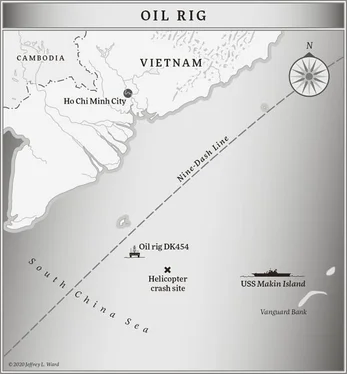Then she turned ten, and things changed—a lot.
One evening, after practice, Mr. Yun, who trained the boys on the pommel horse and rings, brought her a small piece of cake wrapped in wax paper. Student diets were strictly controlled, but Mr. Yun’s gifts became more and more frequent. Each time he gave her anything, he gave her a funny stare. She thought it made him look like his eyes were crossed. Sometimes he even touched her hand, but she was always so hungry, so she’d taken the sweets and wolfed them down without thinking. Then, Mr. Yun had whispered in her ear during supper that she should meet him in the corner, where they stacked the mats—and not to tell anyone. He’d given her a small piece of white cake, filled with cream that was so deliciously sweet and wonderful that it made her head buzz when she ate it. Mr. Yun rested his hand on her upper arm, squeezing her softly. He promised there were more treats where that came from if he and Hala could become secret friends.
Mr. Yun leaped away when the gym door opened, hands raised, as if Hala was on fire and he did not want to be burned. His wife had just stood there in her white T-shirt and red track pants, blinking at him for what seemed like forever. Mrs. Yun was a strong woman, but she grew smaller and smaller that night. Her entire body began to tremble, her chest heaving enough to rattle the whistle hanging on the lanyard around her neck. She summoned Hala over with a flick of her wrist and walked her to the dormitory without a word.
Hala had always thought Mrs. Yun liked her, or at least respected how hard she trained, but the next day, she called Hala to her office and told her she was worthless as a gymnast. Hala tried to apologize, though she didn’t know what for. Mrs. Yun only became angrier and slapped her across the cheek. The blow had knocked out a tooth, which seemed to surprise Mrs. Yun. She’d cried, still shaking, then chided Hala for chewing the collar of her sweatshirt, and called her a stupid, stupid little girl. There was no longer a spot for her at the school. Hala would be put on a train that very afternoon. She would return home to live with her aunt.
Mrs. Yun and the other coaches were surely angry because Hala was doing so much better than their pretty Chinese students. But no, it wasn’t that. They’d known she was Uyghur when they sent her to the school. Had it been the sweets? Hala had figured it out while she packed her things and said good-bye to her friends. It wasn’t because she’d broken the rules of her diet. Mrs. Yun was angry with her because Mr. Yun had put his hand on her shoulder—and looked at her like she was one of his sweets.
That was the past, Hala thought, and resumed dismembering the chicken. There was nothing she could do about it now—
The handle on the front door shook, sending a gush of fear down her back. She jumped, nearly dropping the cleaver, then dipped her head, teeth searching for, then biting, the collar of her shirt.
The door swung open slowly and Zulfira stepped in.
Hala relaxed a notch. “Did you forget some—”
“He is here,” Zulfira said, chin quivering.
“Suo?”
Zulfira swallowed hard. She nodded, lips set tight, red in the face, like she was holding her breath.
The fat bureaucrat darkened the door behind her, suitcase in hand. Smiling cruelly, he waved at Hala as if he were a welcome relative, there to visit for the holidays. He had every right to stay—according to the law. Some might even call it duty. Provincial bureaucrats in Xinjiang were ordered by Beijing to see to the needs of backward Uyghur families, stopping in to visit at all hours, and spending the night.
Civilizing them in a decidedly uncivilized manner.
Fat Suo dropped his suitcase to the floor and tossed his head at Hala. “Put that in your aunt’s room, child, if you would be so kind. And stop sucking on your shirt!”
Hala let the damp collar fall away. She froze, mouth open, looking at the large case. How long did this fat baboon intend to stay?
Suo’s face began to darken.
“Go ahead,” Zulfira said, before turning to the fat man. “Please sit and make yourself comfortable in my home. Your assistant said that you would be late, so I was going to deliver my noodles to the market before making dinner.”
Suo smiled again. “Do not trouble yourself with a meal,” he said. “My meeting ended earlier than expected and I had some rice and pork at the office … Does that offend you? That I ate pork?”
“You may eat whatever you wish,” Zulfira said. “But I do not.”
“I see,” the fat man said. He clapped his thick hands and then held them together, fingers interlaced in front of his face as he looked back and forth from Zulfira to Hala. “In any case, I have already eaten. I am tired. Perhaps you could show me the bedroom.”
Zulfira nodded to the door off the kitchen. “Through there.”
“It is awfully cold, my dear,” Suo said. “Perhaps you might come and warm my old bones.”
“I … I think it would be best if I slept by the stove.”
Hala noticed for the first time that her aunt had already moved a stack of quilts out of the bedroom and put them in the corner of the main room.
The fat man touched his lips with clenched hands, peering over his knuckles in thought. “The girl is small, but I suppose she could warm my—”
“No!” Zulfira said. She touched her belly. “It is just that … I … my husband has only been gone a few months, and I am …”
Fat Suo scoffed. “With child?”
Zulfira chewed on her bottom lip but didn’t deny it.
Suo put a hand on Zulfira’s shoulder, caressing as if trying to calm an animal. Hala clenched her fist, ready to fly at the fat man, but Zulfira flashed her a look.
Suo gave a wry chuckle. “Have you heard of the wild horses of Kalamely Mountain?”
Tears pressed from Zulfira’s lashes as she clenched her eyes. She shook her head.
“Przewalski’s horses, they’re called,” Suo said. “Runty little beasts, in the great scheme of things, but they are thought to have been native to Asia many thousands of years ago. A few dozen were reintroduced here in Xinjiang, probably decades before you were born. There are still not very many, less than two hundred, so I am told.” Suo cocked his head to one side and then ran a knuckle down Zulfira’s cheek. “Every single foal is important to the people who are trying to grow this herd … but the stallions do not care about the herd as a whole. They only care about the foals that come from their loins. Did you know, for instance, that when a stronger stallion finds, shall we say, a pregnant mare whose mate he has killed or is no longer around for one reason or another, he simply mounts the mare with such force as to make certain that there is no chance that any progeny but his own survives?” Suo laughed, throwing up his hands. “Of course, we are not horses. There is no need for rough behavior—”
“So long as the mare remains civil,” Zulfira said.
“Something like that,” the fat man said and chuckled.
Zulfira folded her arms tight across her chest. “Where is your assistant?”
“Ren is busy taking care of another matter.”
A tear ran down Zulfira’s cheek. “What of Hala?”
Suo took her hand. “She may sleep by the stove.” His voice was husky now. “Unless my hand is forced, I have no interest in foals.”
21
Clark checked his watch. Two hours. That gave him enough time to catch a cab to his hotel and grab a couple of samsa from a street vendor. He’d let the minders watch him eat dinner while he studied a tourist map of the city he’d picked up in the terminal and waited for Midas to arrive on the next flight.
The two Campus operatives would coordinate but work without direct face-to-face contact with each other. Clark would take the lead, putting eyes on the Uyghur girl, Hala—and hopefully her mother, Medina Tohti, their actual target. Midas would hang back, taking a broader view, acting as backup and overwatch. The point was not so much to provide a safety net for Clark—there was little either one of them could do if the other was somehow compromised and picked up by XPCC authorities. Two sets of eyes, acting in a coordinated fashion, were far more likely to find Medina Tohti if she was anywhere nearby. If something did happen to Clark, Midas could continue the mission.
Читать дальше











![Александр Ирвин - Tom Clancy’s The Division 2. Фальшивый рассвет [litres]](/books/417744/aleksandr-irvin-tom-clancy-s-the-division-2-falsh-thumb.webp)
